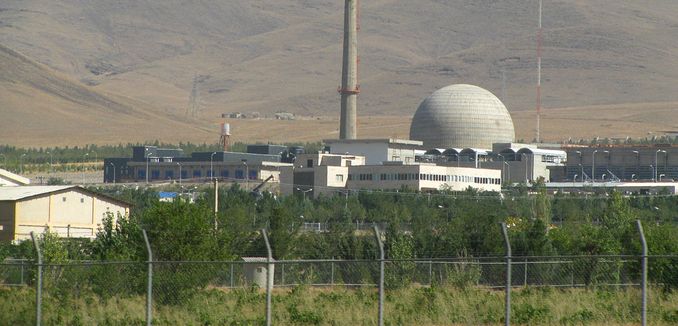The United States has accused Iran of purchasing prohibited materials for its heavy water reactor according to a report today in Foreign Policy written by longtime United Nations correspondent Colum Lynch.
The U.S. allegations were detailed in a confidential Nov. 7 report by an eight-member panel of experts that advises a U.N. Security Council committee that oversees international compliance with U.N. sanctions on Iran. The report, which cites an unnamed state as the source of the allegation, doesn’t identify the United States by name. But diplomatic sources confirmed that the United States presented the briefing.
The confidential report, portions of which were made available to Foreign Policy, notes that “one member state highlighted during consultations with the panel a number of developments regarding proliferation-sensitive procurement by Iran.” The delegation, the report continued, “informed the panel that it had observed no recent downturn in procurement” in recent months. It did cite a “relative decrease in centrifuge enrichment related-procurement” in recent months. But it added that it had detected “an increase in procurement on behalf of the IR-40 Heavy Water Research Reactor at Arak.”
Lynch observes that while Secretary of State John Kerry claimed that “Iran has held up its end of the bargain” when announcing the extension of negotiations with Iran last month, during the past year Iran has refused the International Atomic Energy Agency’s “requests for information about the Iranian military’s involvement in the country’s nuclear program.” Lynch further reports that “[o]ver the past decade, Iran has responded to U.N. sanctions on its nuclear program by developing one of the world’s most confounding shell games, using front companies, international middlemen, and clandestine shippers to secretly acquire the industrial raw materials” to keep all aspects of its nuclear program running.
A heavy-water reactor produces plutonium, which can be reprocessed into fuel for a nuclear bomb, offering Iran a path to a nuclear weapon beyond uranium enrichment. Iran has insisted on its “right” to a heavy-water reactor, repeatedly refusing to either dismantle or convert it, although the research isotopes it claims to need could also be produced by a light-water reactor, which does not produce plutonium.
Last month, former International Atomic Energy Agency official Olli Heinonen charged that Iran had possibly acquired enough carbon fiber to build thousands of undeclared centrifuges, which could allow the regime to produce enough enriched uranium for a nuclear bomb undetected.
[Photo: nanking2012 / WikiCommons ]




